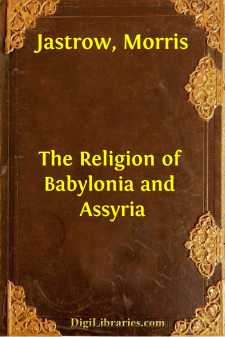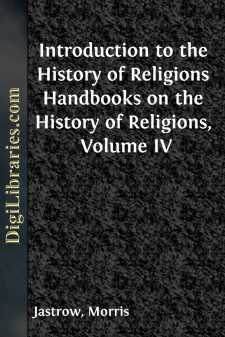Categories
- Antiques & Collectibles 13
- Architecture 36
- Art 48
- Bibles 22
- Biography & Autobiography 813
- Body, Mind & Spirit 142
- Business & Economics 28
- Children's Books 17
- Children's Fiction 14
- Computers 4
- Cooking 94
- Crafts & Hobbies 4
- Drama 346
- Education 46
- Family & Relationships 57
- Fiction 11829
- Games 19
- Gardening 17
- Health & Fitness 34
- History 1377
- House & Home 1
- Humor 147
- Juvenile Fiction 1873
- Juvenile Nonfiction 202
- Language Arts & Disciplines 88
- Law 16
- Literary Collections 686
- Literary Criticism 179
- Mathematics 13
- Medical 41
- Music 40
- Nature 179
- Non-Classifiable 1768
- Performing Arts 7
- Periodicals 1453
- Philosophy 64
- Photography 2
- Poetry 896
- Political Science 203
- Psychology 42
- Reference 154
- Religion 513
- Science 126
- Self-Help 84
- Social Science 81
- Sports & Recreation 34
- Study Aids 3
- Technology & Engineering 59
- Transportation 23
- Travel 463
- True Crime 29
Morris Jastrow
Morris Jastrow (1861–1921) was an American orientalist and librarian, renowned for his contributions to the study of ancient Near Eastern languages and cultures. He was a professor at the University of Pennsylvania and specialized in Assyriology and Semitic studies. Jastrow authored several significant works, including "The Religion of Babylonia and Assyria," which delved into the religious practices and beliefs of these ancient civilizations. His research greatly contributed to understanding the cultures of Mesopotamia, particularly through his translations of ancient texts.
Author's Books:
Sort by:
by:
Morris Jastrow
PREFACE. It requires no profound knowledge to reach the conclusion that the time has not yet come for an exhaustive treatise on the religion of Babylonia and Assyria. But even if our knowledge of this religion were more advanced than it is, the utility of an exhaustive treatment might still be questioned. Exhaustive treatises are apt to be exhausting to both reader and author; and however exhaustive...
more...
by:
Morris Jastrow
CHAPTER I NATURE OF RELIGION 1. It appears probable that primitive men endowed with their own qualities every seemingly active object in the world. Experience forced them to take note of the relations of all objects to themselves and to one another. The knowledge of the sequences of phenomena, so far as the latter are not regarded as acting intentionally on him, constitutes man's science and...
more...



